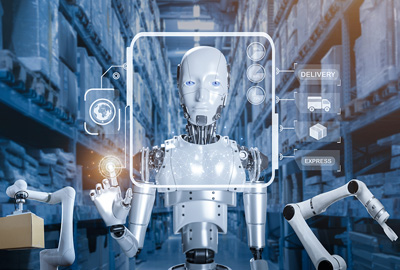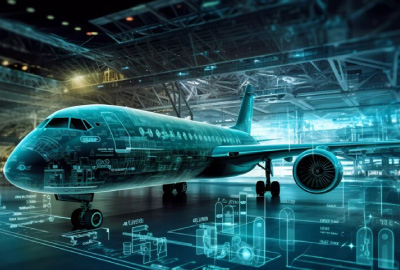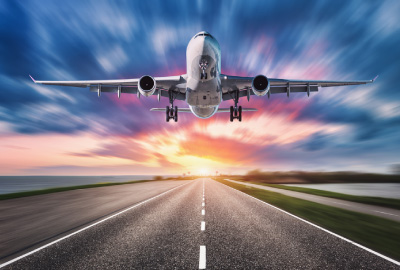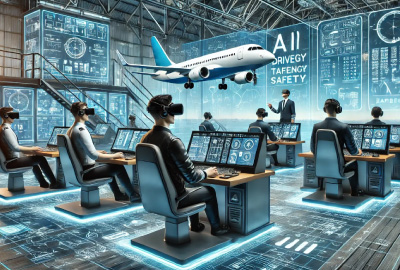
The Most Influential AeroTech Event Covering the ASEAN Region
JAN. 26-27 | BANGKOK, THAILAND | IN-PERSON EVENT



Aviation accounts for 2-3% of global CO2 emissions, a figure projected to rise without intervention. The industry faces a unique challenge due to the high energy density required for flight. Batteries alone are insufficient for long-haul journeys, making decarbonization exceptionally difficult. Developing aircraft that use a combination of efficient gas turbines and electric motors, significantly reducing fuel burn on takeoff and landing, similar to a hybrid car. Using liquid hydrogen in fuel cells to generate electricity for electric motors, producing only water vapor as emissions. Designing engines that are optimized to run on 100% SAF, maximizing efficiency and performance. Open Fan/Unducted Propulsion: Developing ultra-high-bypass ratio engines that look like large, open propellers. These designs are significantly more efficient than traditional enclosed turbofans. Partnering with airports and energy companies to build the necessary infrastructure for liquid hydrogen production, storage, and refueling.

Digital transformation is the critical enabler that accelerates AeroTech's path to net-zero. It transforms data into actionable intelligence, creating a synergistic loop between design, manufacturing, operations, and services to maximize efficiency and sustainability at every stage. Digital IDs and biometrics streamline the passenger journey, while electric, autonomous vehicles handle baggage and taxiing, reducing ground-based emissions. The Passenger Experience & Ecosystem Integration, AeroTech provides airlines with an API that allows passengers to see the exact carbon footprint of their flight, the type of SAF blend used, and offers options to contribute to carbon offsetting or SAF adoption directly when booking.

AI and ML are not just tools; they are foundational technologies that permeate every aspect of the business. They act as the "brain" that optimizes for efficiency, safety, and sustainability, turning vast amounts of data into a competitive advantage and an environmental imperative. AeroTech's vision is to create an aviation ecosystem where AI systems continuously learn and adapt, making real-time decisions that minimize energy consumption, maximize operational efficiency, and accelerate the discovery of new sustainable technologies. For airline customers, AeroTech offers an AI-driven service that optimizes fleet assignment—matching the most efficient aircraft (e.g., a new hydrogen model) to the most suitable route based on demand, weather, and infrastructure.

A Smart Airport Ecosystem is an integrated, intelligent environment that leverages cutting-edge technologies like the Internet of Things (IoT), Artificial Intelligence (AI), Big Data, and cloud computing to enhance every aspect of the passenger journey, airport operations, and commercial activities. It moves beyond isolated systems to create a connected, data-driven, and predictive environment focused on efficiency, security, sustainability, and a superior passenger experience. Digital Twins A virtual replica of the physical airport used to simulate scenarios, optimize layouts, and test changes without disrupting real operations.

Passenger Experience is the strategic design and management of every touchpoint a passenger has with an airport and its partners (airlines, retailers, etc.). It moves beyond basic functionality (check-in, security) to create a stress-free, personalized, and efficient journey from curb-side to airside and beyond. The goal is to transform the airport from a place of anxiety and waiting into a productive, comfortable, or even enjoyable part of the travel day. It focuses on how technology and data are used to make the journey through the airport not just efficient, but genuinely pleasant and seamless.

Advancing aviation training is a critical frontier, driven by the need for greater safety, efficiency, and to address pilot and technician shortages. The focus has shifted from traditional, hours-based training to competency-based, technology-enabled learning. The core philosophy is evolving. Instead of just logging a set number of hours, the goal is to prove proficiency in specific competencies (e.g., manual flying skills, decision-making, resilience under stress). This is often referred to as Evidence-Based Training (EBT) and Competency-Based Training and Assessment (CBTA).
Main Conference
Sub-Streams
Buffet Lunch
Documentation Package
Main Conference
To know more Brands
3 One to One Meetings
Known by 200+ Delegates
Reported by all Media Partners
Main Conference
Standard Exhibition Booth
3 One to One Meetings
Sub-Streams
Documentation Package



































